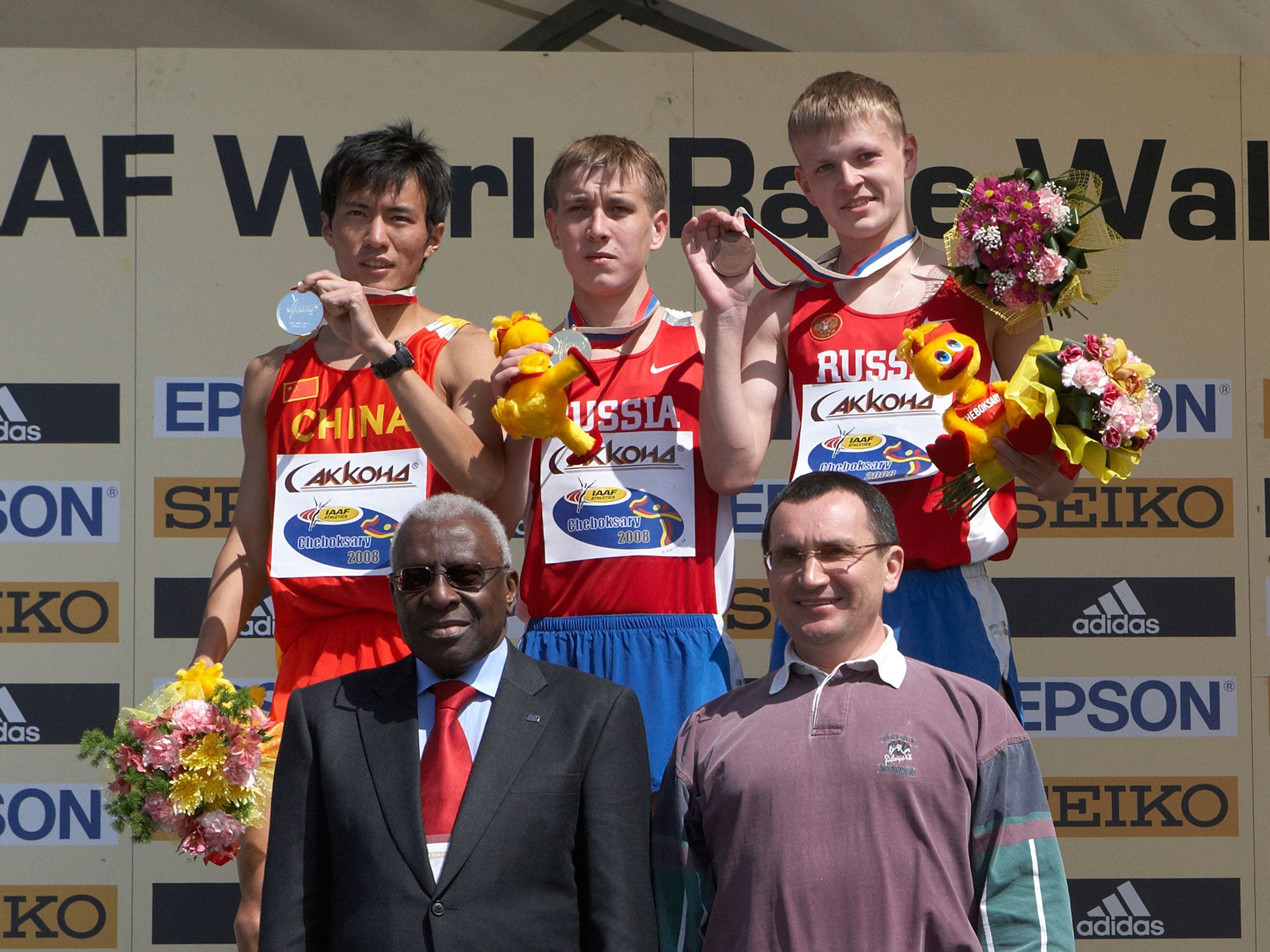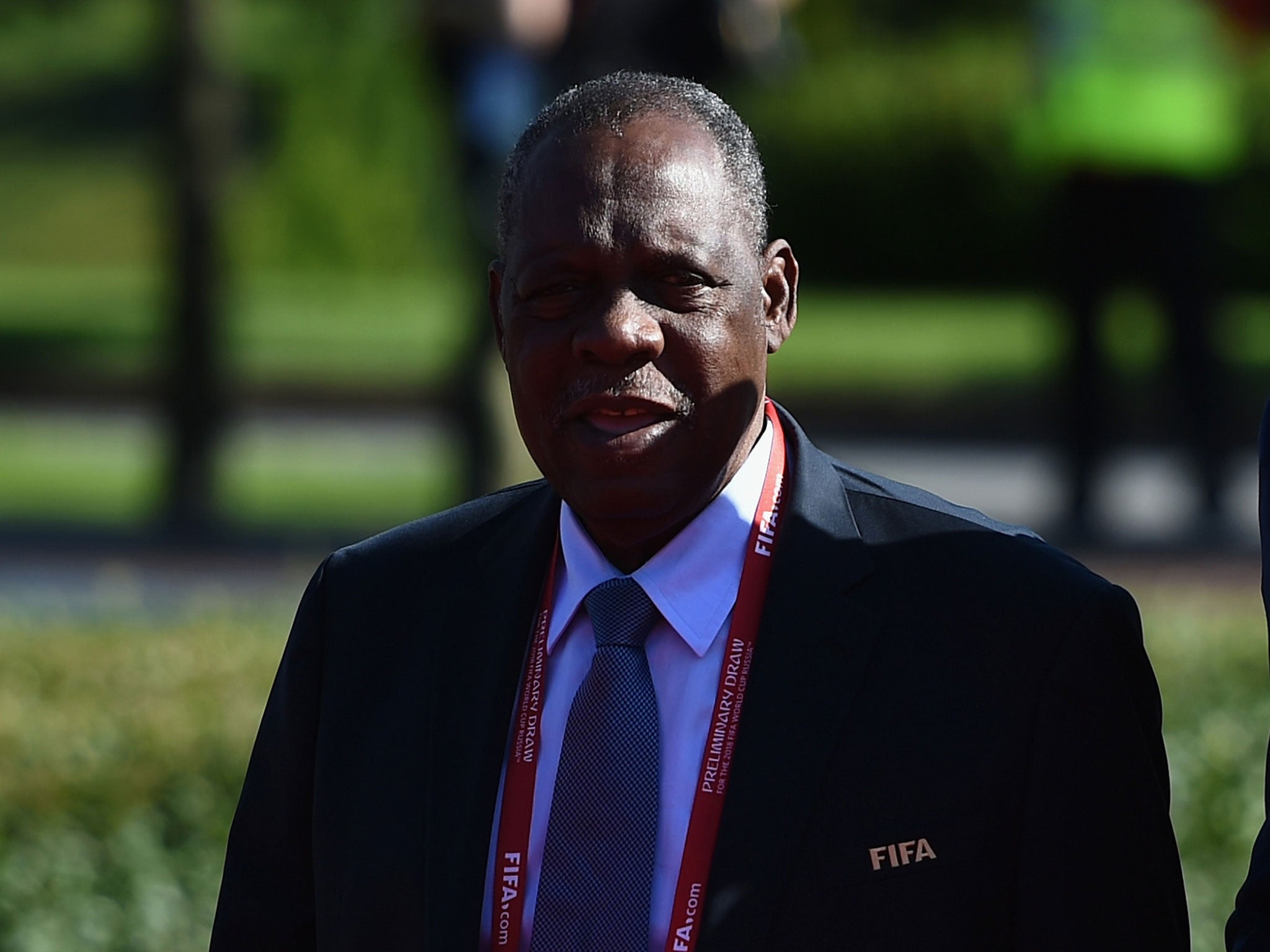Doping crisis: Lamine Diack is the 'joker' whose legacy is anything but funny
Diack's generation, with the agonising slowness that typifies those who organise sport rather than compete in it, appears finally to be moving on

Your support helps us to tell the story
From reproductive rights to climate change to Big Tech, The Independent is on the ground when the story is developing. Whether it's investigating the financials of Elon Musk's pro-Trump PAC or producing our latest documentary, 'The A Word', which shines a light on the American women fighting for reproductive rights, we know how important it is to parse out the facts from the messaging.
At such a critical moment in US history, we need reporters on the ground. Your donation allows us to keep sending journalists to speak to both sides of the story.
The Independent is trusted by Americans across the entire political spectrum. And unlike many other quality news outlets, we choose not to lock Americans out of our reporting and analysis with paywalls. We believe quality journalism should be available to everyone, paid for by those who can afford it.
Your support makes all the difference.Lamine Diack’s world must be a hilarious place to live, this latest scandal being only the most recent “joke” that others might consider no laughing matter.
The 82-year-old Senegalese, a former long jumper of some repute, has been the head of the International Association of Athletics Federations for 16 years, a period more than long enough to be forced to dismiss out of hand his fair share of scandals. This final one – he will step down this month – is by some margin the most serious, in that it has grave implications for the sport itself, not merely his own good character, which you don’t have to submit to especially rigorous testing in order to find abnormal results.
Probably, in the rarefied world at the very top of sports administration, where Diack has resided for some years, one is simply not taken seriously without having been implicated in a bribery scandal over the sale of marketing rights. He does not disappoint.
The receipt, in 1993, of payments totalling around £25,000 from the now notorious and bankrupt sports marketing company ISL, which was bidding for Olympic rights, might appear suspicious, but Diack instead was “laughing at the allegation” when it was made public in 2011. It should, he claimed, have been clear to all concerned that the money was a gift because his house had burnt down.
The IOC reprimanded him for putting himself in a “conflict of interest situation”, but such matters evidently do not prevent a man from going on to run athletics for 16 years, which places in some sort of context the fact that his organisation would appear to have been sitting on thousands of highly dubious doping results for more than a decade.
His co-accused in the ISL case, Issa Hayatou of Cameroon, received a similar sum from the company, despite his house remaining entirely uncombusted throughout the period in question, which can only be put down to good fortune. As can the fact he remains head of the African Football Union and Fifa’s longest-serving vice-president.

Nor did the incident prevent Diack’s son, Papa Massata Diack, from taking a role in the IAAF’s marketing department, from which he was forced to step down in December, after the leaking of an email in which he appears to have requested a $5m (£3.2m) cash payment from the organisers of Qatar’s bid for the 2017 athletics World Championships. Doha lost the bid, to London, and this particular payment was never made. But it won the same contest two years later and will host the 2019 tournament.
Diack Snr’s most recent “joke” has united like nothing else the two men competing to replace him as IAAF president at an election on 19 August, Britain’s Sebastian Coe and Sergey Bubka, the legendary Ukrainian pole-vaulter. They are in no doubt whatsoever about its seriousness.
A knee injury kept Diack out of the 1960 Olympics, but propelled him, curiously, into the world of football coaching, and the Senegalese team’s success in the late Sixties meant, according to his biography on the IAAF website, that “important political appointments were sure to follow”.
He became secretary of state for youth and sport, then mayor of Dakar, then vice-president of the National Assembly. It is a pity such career trajectories don’t appear to be quite so inevitable in British football. The House of Commons would certainly be a more interesting place.
It was only the death of the previous IAAF president, Italian Primo Nebiolo, after a mere 18 years in charge – just over half the average length of time, since the organisation’s foundation in 1912, that a president has tended to stick around for – that opened Diack’s path to the top.
Since then, the voices calling for a mandatory lifetime ban for any instance of doping have multiplied and amplified. A similar policy for sports administrators would be popular, at least with the general public, should even the most minor impropriety in their cash-flooded world emerge.
Diack has done little with regard to the former or the latter. But his generation, with the agonising slowness that typifies those who organise sport rather than compete in it, appears finally to be moving on.
Join our commenting forum
Join thought-provoking conversations, follow other Independent readers and see their replies
Comments